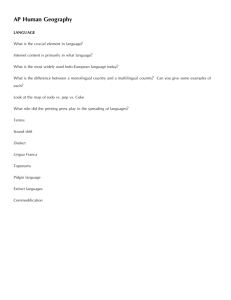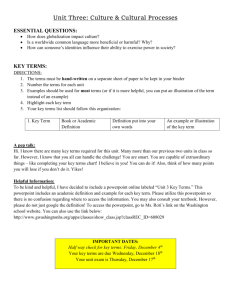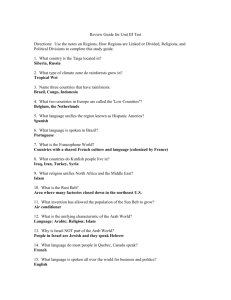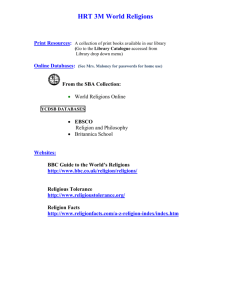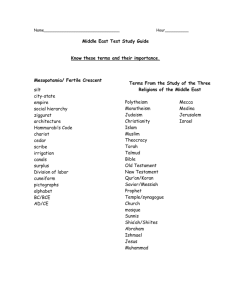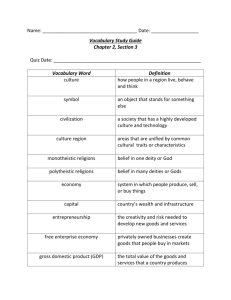CULTURAL IMPERIALISM…
advertisement
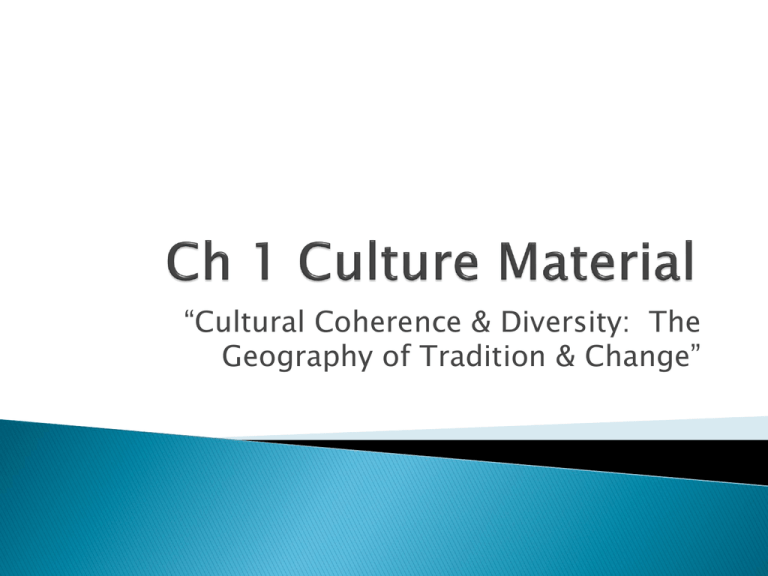
“Cultural Coherence & Diversity: The Geography of Tradition & Change” Question 1 – The authors are referring to the rapid spread of Western culture due to global communication systems. Some parts of the world willingly accept this diffusion of Western culture, but others resist & resent it. CULTURAL IMPERIALISM: the active promotion of one cultural system over another (historically associated with Imperialism; now caused by globalization). (glossary p. 637) Factionalism – a group of people inside a larger group working in a common cause against the main group. (Example: Tea Party Republicans; Conservative Democrats). Separatism – a group of people inside a larger group who actively advocates & desires to become a separate entity (can be political, religious, ETHNIC etc). SEPARATISM ALWAYS RESULTS FROM FACTIONALISM BUT NOT ALL FACTIONALIST GROUPS ARE SEPARATISTS!!!!!!! Questions 2 & 3 Scottish independence FOLK – rural, largely self-sufficient, homogeneous, conservative/traditional (Ex: Amish) ETHNIC – controlled by clear lines of authority through family, clan, tribe or church (EX: the Hutu & Tutsi tribes in Rwanda, Africa). POPULAR – urban-based, heterogeneous, rapidly changing. (Ex: hip hop culture in USA) WORLD – empowered by GLOBALIZATION – this refers to the idea that because we’re much more connected globally we will start to develop similar universal cultural traits & practices (EX: all major world cities have similar landscapes of offices, hotels, restaurants, entertainment choices, etc). HW Q #5 3 examples of cultural Imperialism: McDonald’s/Starbucks/ found in major cities world-wide; English is the dominant language of the Internet; Western films & pop stars sell out venues on world-wide tours HW Q#6 CULTURAL NATIONALISM – the process of protecting & defending a cultural system against diluting or offensive cultural expressions while also actively promoting national & local cultural values. Cultural Nationalism is a REACTION against cultural Imperialism because cultural Imperialism attempts to do the OPPOSITE of what cultural nationalism seeks to achieve. HW Q#7 CULTURAL SYNCRETISM aka “hybridization” occurs when contact/connections between cultures cause a blending of aspects from both cultures that forms a new culture that is unique. EXAMPLE: due to the British colonial period in India, English is commonly spoken. However, India’s use of English (often called “Indlish”) has aspects of both formal English & Hindi & contains many words that are unique to that culture. HW Q# 8 PROSELYTIZING is done in an attempt to convert a person from one religion to another UNIVERSALIZING RELIGIONS are those that usually have an active missionary program and that appeal to a large group of people regardless of local culture and conditions. Christianity and Islam are both examples of UNIVERSALIZING RELIGIONS. Hw q# 9 ETHNIC RELIGIONS are those that are closely identified with a specific ethnic or tribal group. Normally ethnic religions do not seek new converts. (Judaism and Shinto are good examples of ethnic religions). Proselytizing would play a major role in UNIVERSALIZING RELIGIONS but would not be a factor in ETHNIC RELIGIONS. MONOTHEISTIC religions believe in 1 God (Christianity, Judaism, Islam); POLYTHEISTIC religions believe in more than one god. (HINDUISM is a good example of a Polytheistic religion) HW Q# 9 & 10 SECULAR means “not sacred or religious” and signifies a “worldly” perspective absent significant religious influence. The trend in some world regions is to move away from regular participation and engagement with traditional organized religion is often referred to secularization. Some world regions are more secular than others…that is…the influence of religion is not nearly as significant (culturally, politically, etc) in those regions. HW Q#11 YOUR ASSIGNMENT WAS… FIRST… To define each term (always in sentence form). Each pair of terms below is related in some way. So your SECOND task was to explain the relationship between the terms. (Example: Cause/effect; the terms may be opposites, etc.) Your answer should demonstrate both your understanding of the meaning of each individual term as well as their relationship to each other. Here are some sample answers… TERMS: Colonialism (Imperialism) and globalization. DEFINITIONS: Colonialism/Imperialism is the control by one country of the politics, economy and/or culture of another country. Globalization is the increasing interconnectedness of people, places & things due to the world wide convergence of economics, politics & culture. RELATIONSHIP: These terms are similar in that they both represent methods by which cultural change can happen. While colonialism/imperialism is a more deliberate/intentional method of control & dominance; globalization may be more subtle, however it has also led to a dominance of Western culture around the world.
